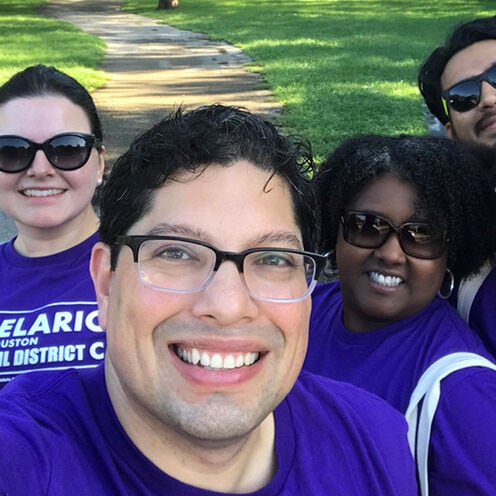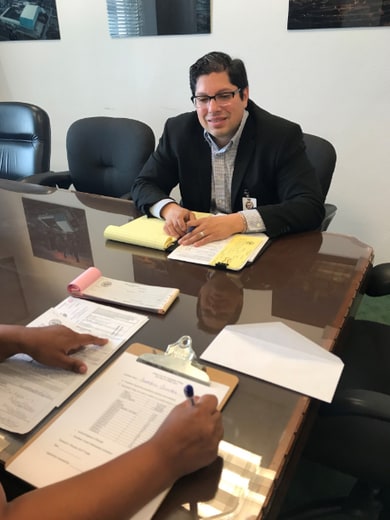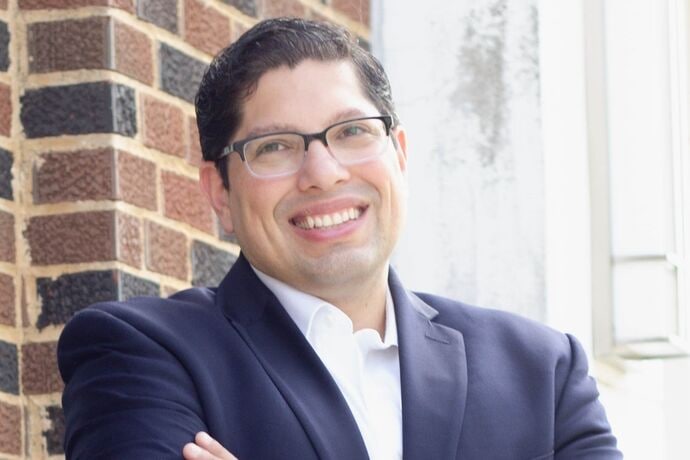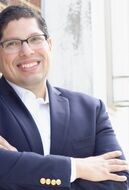
Our Leaders Must Reflect the Communities They Serve
A former candidate for local office shares lessons learned from losing his race and why all levels of government should mirror our nation’s diversity.
I never intended to run for office. But when I researched the 10 candidates running for City Council in my district in Houston—a city whose population is less than 60 percent white—I discovered that 100 percent of the candidates were white.
I automatically started thinking: Who do I know from our network who would be a good candidate?
This was in the spring of 2019, and the election was in November of that year. Most candidates had been planning their races for a year or longer and had already filed to run. I started looking for someone to throw their hat in the race. I spoke with community members; fellow Latinx folx; Black, Indigenous, and other people of color who are my neighbors and thought partners. But then they started asking me, “Why don't you run? You have been doing the work, the community members know you, and you have a lot of trust."
I resisted. There was a lot on my plate, in addition to my full-time job. And, if I was being honest with myself, I wasn’t comfortable with the unfamiliar.
But I realized I’m always telling our network that people like us should run for office because we’re underrepresented. And I’m a big believer in practicing what I preach, and not just when it’s the easy thing to do. It would be an uphill climb; other candidates either came from wealth or were running their campaigns full time. One of the candidates had already raised about $100,000. I hadn’t even started fundraising.
Elevating Voices from the Communities
While I was considering whether to run, I went to a City Council meeting and listened to a Latina community member courageously advocate for herself and her fellow community members, speaking in her second language, advocating for the city to cut back the overgrown grass on the sidewalks. She used a walker and couldn't get by to get groceries, so she had to walk on the street. Drivers were honking at her and calling her “stupid woman,” and she thought, "I'm not a stupid woman. I just need to get groceries." I thought: How can we not fix these basic needs so that our community members can thrive—especially some of our most vulnerable community members?
Hearing her story, I realized yet again how important it is to have leaders who elevate the voices of our community members at the fringes, those without the funds and who don’t usually have the capacity to show up at City Council or Civic Club meetings. Our communities are severely underrepresented, not just in elected office, but in all executive and leadership-level roles.
I filed to run for city council. I didn’t have political know-how, but I had a mission to lift the diverse voices of my community, and that was all I needed.
Even though that experience was more than a year ago, I’ve been thinking about it a lot lately. President-elect Joe Biden and Vice President-elect Kamala Harris will soon begin their terms in office, along with hundreds of federal, state, and local officials around the country. They, in turn, will be naming the leaders, administrators, and staff members who will be making decisions that affect all of us. There are about 4,000 federal roles that the administration has to fill, and countless others at all levels of government: federal, state, and local.
We must continue to put pressure on the incoming administration to hold fast to their promises of a diverse Cabinet. But the need goes well beyond just those officials: Broad and diverse representation is essential at all levels and all offices of government, and in all industries, for that matter.
If we don't have folx with different lived experiences and different backgrounds in decision-making positions—if we're not making those spaces inclusive—then we are accepting the status quo. We need a diverse set of lenses examining all of our policies and systems and structures in order to create systems and structures that are equitable.
The Impact of Diverse Representation
We see the impact of diverse representation every day in our schools and in our work here at Teach For America. When we have BIPOC school leaders who reflect the community, our kids are able to say, "There's a leader that comes from my background or shares my lived experience, I can do that, too.”
As someone who grew up in a rural community and never saw anyone who shared my lived experience in these leadership roles, I never imagined myself running for a seat on the city council for the fourth largest city in the United States. I got the confidence to run for this seat thanks to our work with our partners—such as the Congressional Hispanic Caucus Institute (CHCI), Leadership for Educational Equity (LEE), League of United Latin American Citizens (LULAC), and UnidosUS— that have a focus on increasing Latinx representation on Capitol Hill as well as from hearing from Latinx members of Congress about their experiences. I reflect on my own lived experience and know how important it is for our children to see people like me running for office. Sharing our stories will help give them the confidence to run for elected office or apply for roles that they may have never imagined they could occupy.

Knowing the Needs of the Community
Our leaders' diversity is also essential to help ensure that the bills and programs under consideration are inclusive of the actual needs of our students and communities. As policymakers are making these decisions, we need to make sure they actually know what our students and our educators need. I have always focused on asking our community members what they need and want and helping increase their awareness of all the resources available to them: “You don’t know what you don’t know.”
While running for city council I knew it would be important to connect with the campus principals and school directors in the district to hear from them what our community members need. They know the needs of our students and those of our community members and they can ensure we socialize resources available to them to ensure our communities can thrive. If there's no one in leadership who understands our communities’ needs, then how do we expect policies to be changed for the better or our needs to be included in new legislation?
Helping People Navigate the System
In order for us to increase diversity, we need to continue to teach our community members how to navigate the system, so they can be hired, appointed, or elected to decision-making roles and we can continue to work to dismantle racist policies and systems. How do you even get on a list to be considered for an appointment or job in government? How can we demystify the process?
When I decided to enter the city council race, I didn't even know when or how to file to run. What does that process look like? How do you submit campaign finance reports? I would always have these nervous days where I would wake up in the middle of the night worrying, "What do we need to file? How do we file? When are those deadlines?" Were it not for the support of our partner LEE and the encouragement and information I received from two of their Latinx staff members, Marcus S. Ceniceros (he/him/his) and Diana Bonete (she/her/hers), I may have not mounted my campaign.
Now I'm trying to write a playbook to make it easier for the next person who is running, so they won’t face those same barriers. I have also been working to increase the awareness of all the amazing partners and collaborators we have that help support our BIPOC communities navigate all levels of government and leadership roles. It is through working together and leaning on each other for support that we will have the progress we need.
In my city council race, I ended up coming in fifth. But that’s not the full story of my experience.
During the campaign, when I spoke on panels, at forums, and at events, I found that no one was talking about equity and inclusion—until I started to. And then suddenly others started talking about these essential issues, too. They were talking about equity and inclusion because I put myself out there and moved the conversation forward.
Just being in those spaces and on these panels, having these conversations, and elevating these issues, we are able to actually change the conversation of what the policymakers are thinking about. That’s why it’s so essential that we make it easier for people to navigate the system and encourage them to vie for these positions, elected and appointed, even when the odds are daunting.
I may not have won my race, but even today I continue to communicate with the person who did take office, sending them information I'm hearing from our community that they may not otherwise hear.
If we’re not there to voice our communities’ needs, who's going to be there?
Visit our @tfalatinx Instagram account to find and share more resources to support our partners’ efforts to ensure the United States government reflects the diversity of our country.

Candelario Cervantez (he, him, his, él) is a business executive who is committed to opening educational opportunities to historically underrepresented and underserved minority populations and a champion for educational equity and excellence. Candelario is also a strong advocate of the promotion and advancement of diverse leaders in all industries.
We want to hear your opinions! To submit an idea for an Opinion piece or offer feedback on this story, visit our Suggestion Box.
The opinions expressed in this piece, and all others in our Opinion section, represent those of the authors and do not necessarily reflect the views and opinions of the Teach For America organization. Teach For America is a 501(c)(3) nonpartisan, nonprofit organization and does not endorse any campaigns or candidates for public office. Recipients of AmeriCorps funding, including most TFA corps members, are prohibited from engaging in political, voter registration, and census activities while charging time to their AmeriCorps grant.
Sign up to receive articles like this in your inbox!
Thanks for signing up!
Content is loading...







